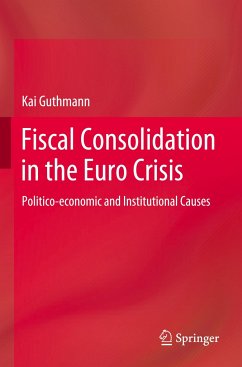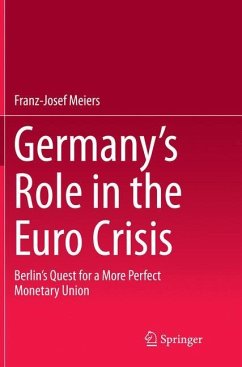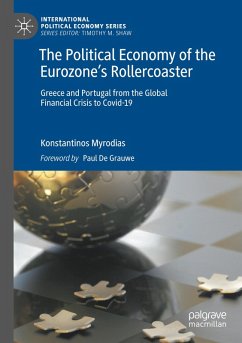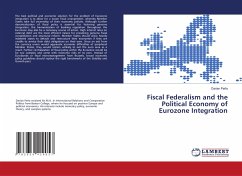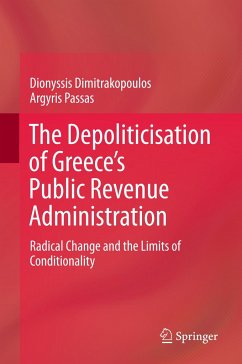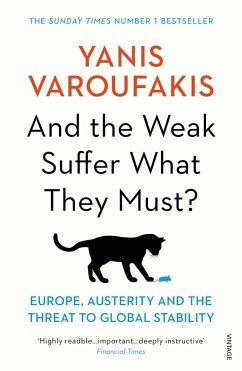
Fiscal Consolidation in the Euro Crisis
Politico-economic and Institutional Causes
Versandkostenfrei!
Versandfertig in 6-10 Tagen
83,99 €
inkl. MwSt.
Weitere Ausgaben:

PAYBACK Punkte
42 °P sammeln!
This book sheds new light on if and why, between 2009 and 2015, European governments succeeded or failed in initiating and actually realizing some of the farthest-reaching austerity plans in modern history. The author analyzes the economic and political context and the underlying causes of austerity and economic adjustment packages during the Euro crisis. In doing so, he shows that austerity has its roots in an institutional mismatch between capitalist diversity in the Eurozone on the one hand, and an ill-conceived common economic regime on the other. In this context, austerity trumped politic...
This book sheds new light on if and why, between 2009 and 2015, European governments succeeded or failed in initiating and actually realizing some of the farthest-reaching austerity plans in modern history. The author analyzes the economic and political context and the underlying causes of austerity and economic adjustment packages during the Euro crisis. In doing so, he shows that austerity has its roots in an institutional mismatch between capitalist diversity in the Eurozone on the one hand, and an ill-conceived common economic regime on the other. In this context, austerity trumped politics, and even democracy itself. The book will appeal to scholars of political science and comparative political economy, as well as governmental policymakers and practitioners in the finance sector.





